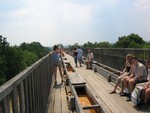A bit more then only studies
It’s been ages since the time when I posted something. Well “blog, blog, blog it all” its not my mantra. Anyway let start it all…
Studies – Background
As I written some time ago, I’m studying Computer Science and Mathematics. It’s a degree program that after 3 years I could be bachelor of Computer Science and then after 4th bachelor of Mathematics.
So why I choose that kind of studies? Computer Science was an obvious choice. Programming is in my blood and for me it’s something more than just a profession or a way of career. I write a first program when I was about seven, but I really pick it up when I was at 14 when I learned how to code in Pascal. I spend many hours studying mainly algorithms, linux system1 and network protocols. Soon2, I knew that it is what I loved to do. Mathematics is a different story. It learn me how to think effectively, solve problems and it’s sometime useful. I also put a lot of effort in it, but it wasn’t and it isn’t my aim itself. I like it, I was pretty skilled at it (at school level), but nothing more then that. So I list potential interesting studies for me:
- Warsaw University – Mathematics and Computer Science
- Warsaw University – Computer Science
- Wrocław University – Computer Science
- A few other options
I generally have a very simple criteria. Will it learn me something useful/interesting? Is it ambitious enough? So I excluded all universities that will force me to learn C language, that I already know. I also want to be taught things that I can’t learn myself, not only how to use XYZ library in ABC language. After that step most of universities of technology were out. Then it came the list above, which comes down to dilemma: do I want to one of the best in new university or be normal, but rather study among the most talented. When I want to be best, Cracow or Wrocław University were a good choice. Only a few students have probably similar achievements3. In other hand, to get into special degree program on Warsaw University4, finalist/laureate in Olympiad is just a requirement. There is about 30-40 students a year on that field, so it is a truly top level. It want to get out of studies as much as I can, so I decided to choose Warsaw University with its ambitious degree program.
Studies – real life
As I expected, hard work. I’ve got only four subjects, but quite a few lectures and classes in general. I give a few words about each of it:
Introduction to programming (functional approach)
It is an alternative subject who already know how to code and think in “normal” language like Pascal, C or C++. Instead of those well known language we learn ocaml. To give you a little bit of taste, imagine a language without a loops5 and variables, it’s how we mainly work. Because I’m already familiar to programming its relative the easy subject.
Mathematical analysis
A tough one. A lot of proofs, formulas and problems. In most cases if you think that something is obvious, it means that you don’t understand that.
Linear algebra and geometry
Less hard then analysis, but involves much more computations.
Foundations of Mathematics
Mostly logic, set theory, relations etc. Seems to be quite a nice subject, but I gave me final word after exams.
More then studies
Some of my activities: I regularly attend SKMA6 meetings. Plus some algorithm competitions just for fun. I also had to finished quite a few additional task related to my last internship job in ICM. By the way, I’ve coded a PHP back end, and translate image files design to HTML layout for a small website…
More to come on this blog
- A trip to Cracow.
- A series about some kind of programing tricks, first one about C/C++
- I mean bash, commands, configuration, rather then exactly hacking linux kernel. [back]
- In matters of years. [back]
- I talk about algorithm competitions, were such a comparisons are possible. (mostly Olimpiad in Informatics) [back]
- Jednoczesne Studia Informatyczno Matematyczne (translation: Simultaneously Studies of Computer Science and Mathematics href=”#fn1196968805184″>back]
- and ugly gotos ;-). [back]
- a catholic student organization [back]


 del.icio.us
del.icio.us Top Coder
Top Coder